October 15, 2021
Rajwinder Singh Sandhu stands in front of a mirror and suits up for an afternoon motorcycle ride through the country roads south of Winnipeg. He winds a fuchsia-coloured turban around his head and slips on a black leather vest adorned with a large blue and yellow patch on the back that identifies him as a member of the Sikh Motorcycle Club of Manitoba.
The club's insignia includes a khanda, a symbol of the Sikh faith and a sign that what unifies him and his fellow motorcycling enthusiasts is more than a love of the open road.
For more than two decades, Sikh riders in Canada have fought for the right to be exempted from the helmet requirement that motorcyclists are obliged to follow so they could wear a turban. In Manitoba, they won that right in 2000, shortly after the first exemption came into effect in B.C. in 1999.
"Whenever we ride wearing turbans, it already gives out a positive message in society, that we are very proud Canadians and part of this society, we are in a free country," said Singh Sandhu, the club's spokesperson.
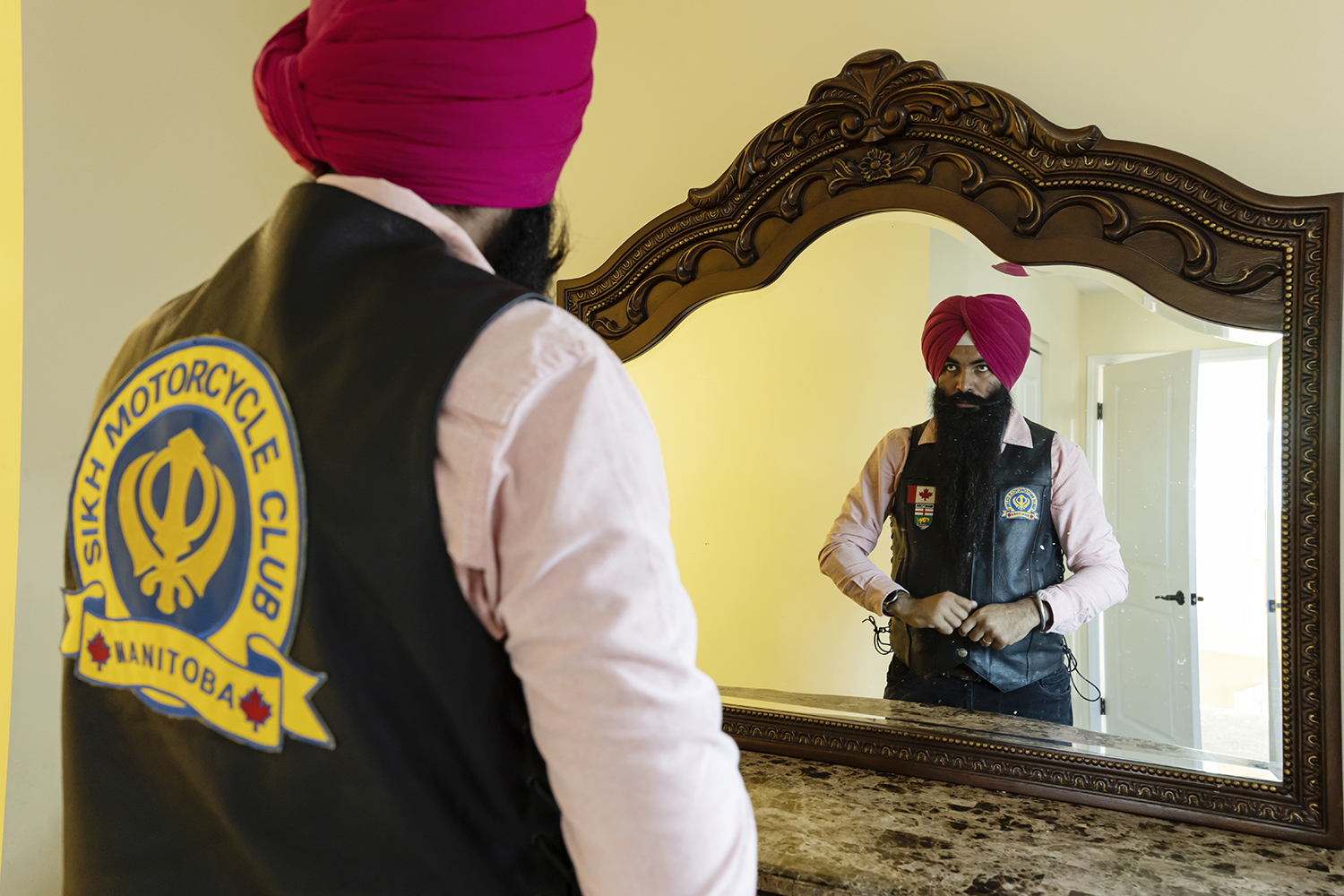
Singh Sandhu says there is more work to be done when it comes to spreading awareness of the Sikh culture and traditions as well as exposing the Sikh community to the cultures of other ethnic minorities that make up the fabric of the country.
"We are blending in the culture and ask for this much space [to practice the Sikh faith] so that you respect our culture, too," he said.
"So until we spread our message in a positive way, the barriers are not going to break."
Riders in the Sikh Motorcycle Club of Manitoba are part of a growing number of clubs spreading across Canada. While British Columbia had the first established club, which started in 2003, ridership is growing in Alberta, Saskatchewan and Ontario, with more than 200 club members overall.
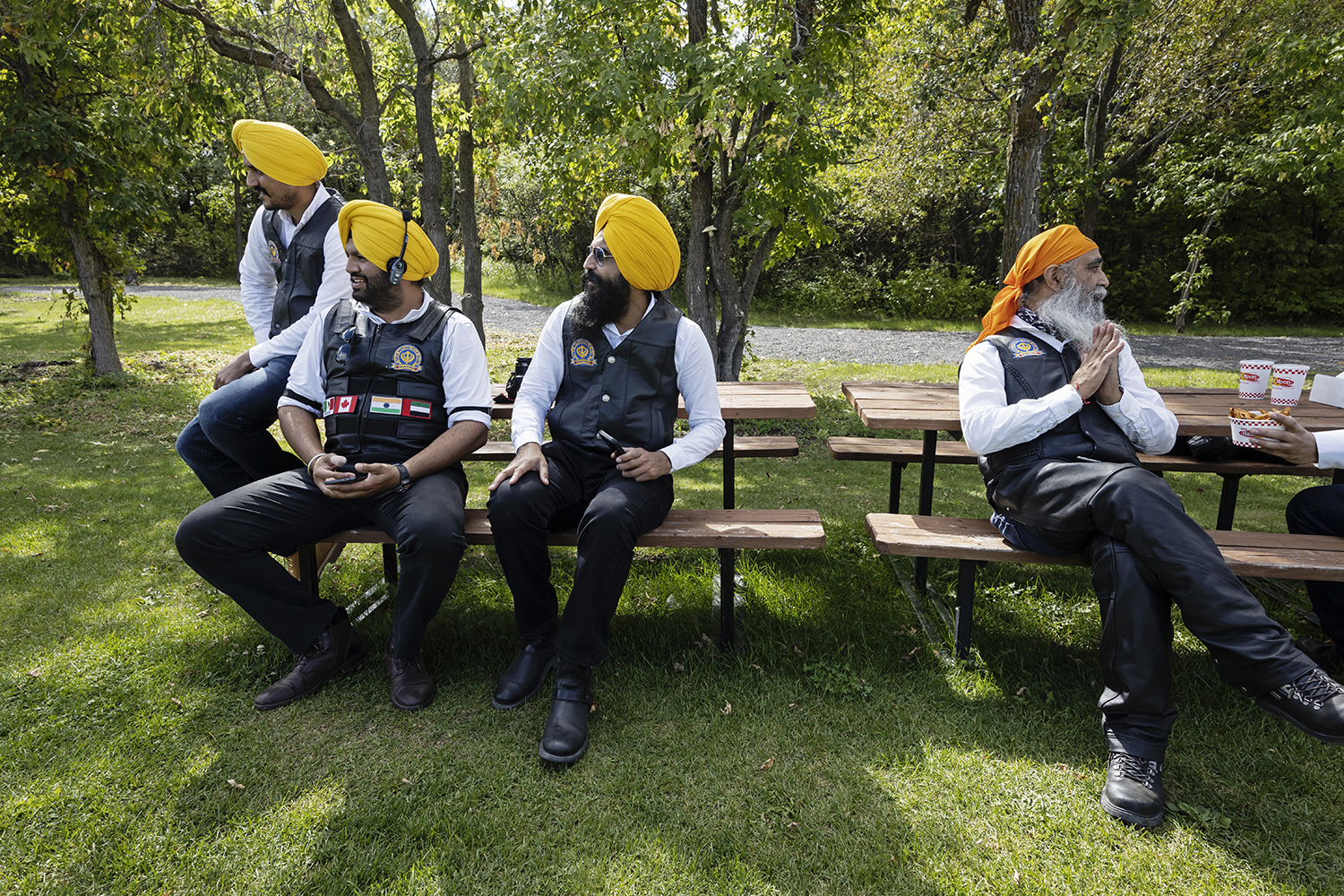
Four years ago, Sikhs in Manitoba started their own club in Winnipeg, which now has nearly 30 members, including two women.
"We are what you would call a gentleman and ladies club,'' said HS Chawla, one of club's organizers.
"We try to be a part of the society, [and] we have like-minded people who like to ride together. That's our main motive."
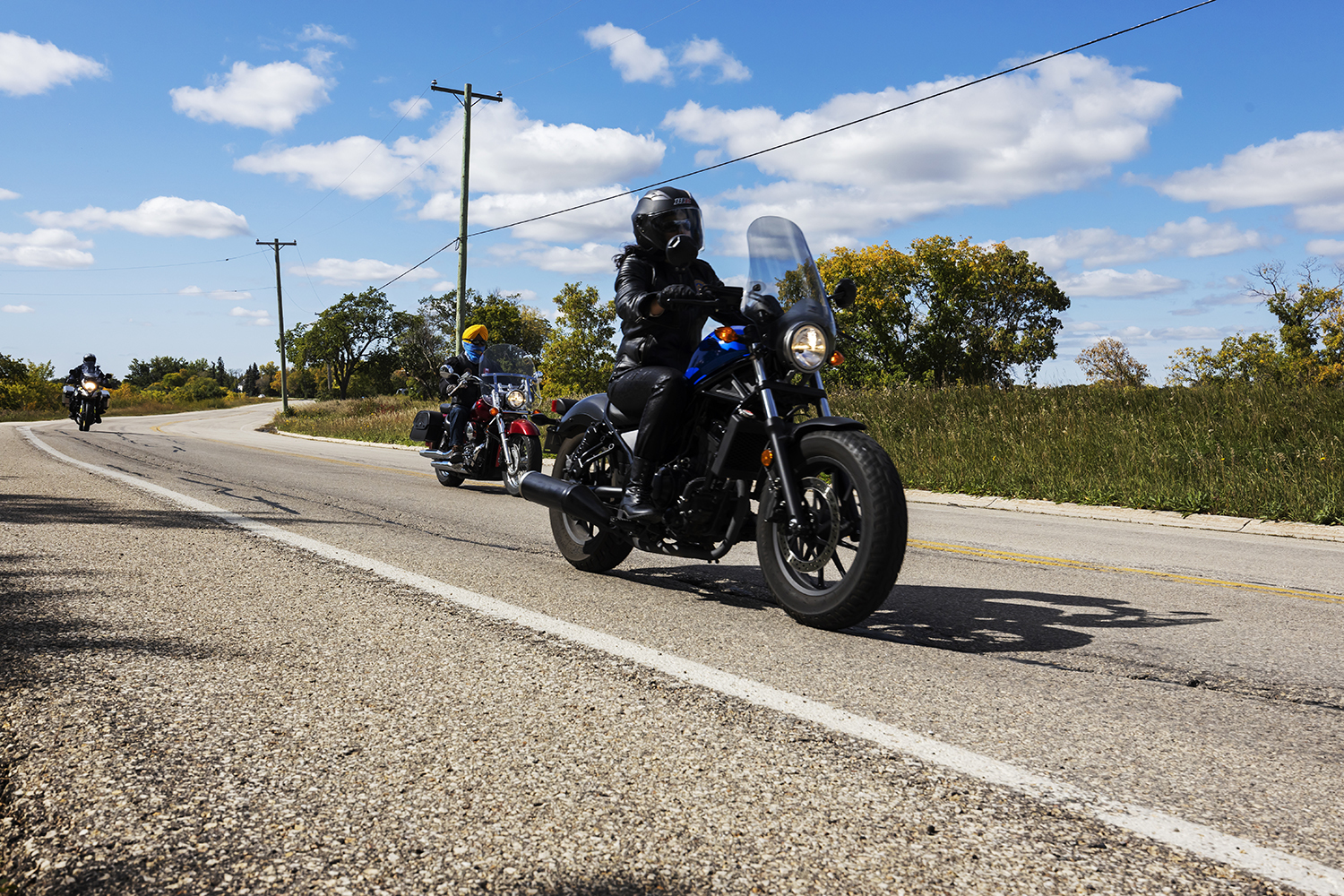
For men who subscribe to the Sikh religion, wearing a turban is both cultural and religious in significance, but many women who are baptized in the Sikh faith choose to wear it, too.
The Sikh Motorcycle Club of Manitoba is part of a growing number of such clubs spreading across Canada. Its members organize rides to raise money for charity and to increase awareness about the Sikh community.
Chawla says the main motive for starting the Winnipeg club was to spread awareness and show people that Sikhs and motorcycles go together.
"Just to show the people that we are also part of the community," he said.
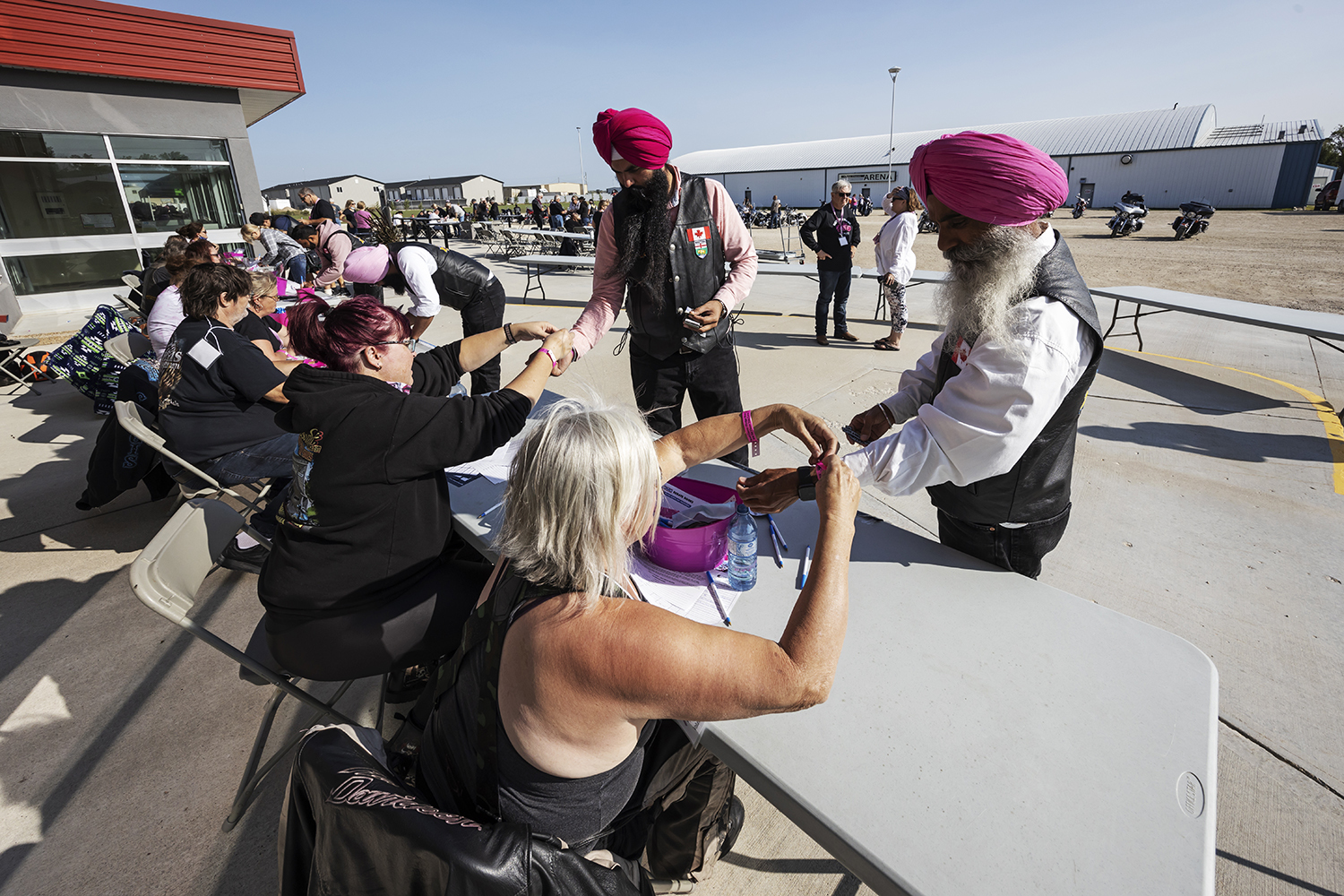
The group maintains close involvement with charities and local causes, such as Diabetes Canada, and raised more than $22,000 for CancerCare Manitoba's breast cancer pledge ride in September.

During charity rides, Sikh motorcyclists combine their religious customs with solidarity for the cause they are supporting by wearing different-coloured turbans that signify the particular cause.
"Today, we are joining the 20th annual pledge ride for breast cancer, so we decided to wear all pink turbans," said Singh Sandhu ahead of a breast cancer pledge ride in September.
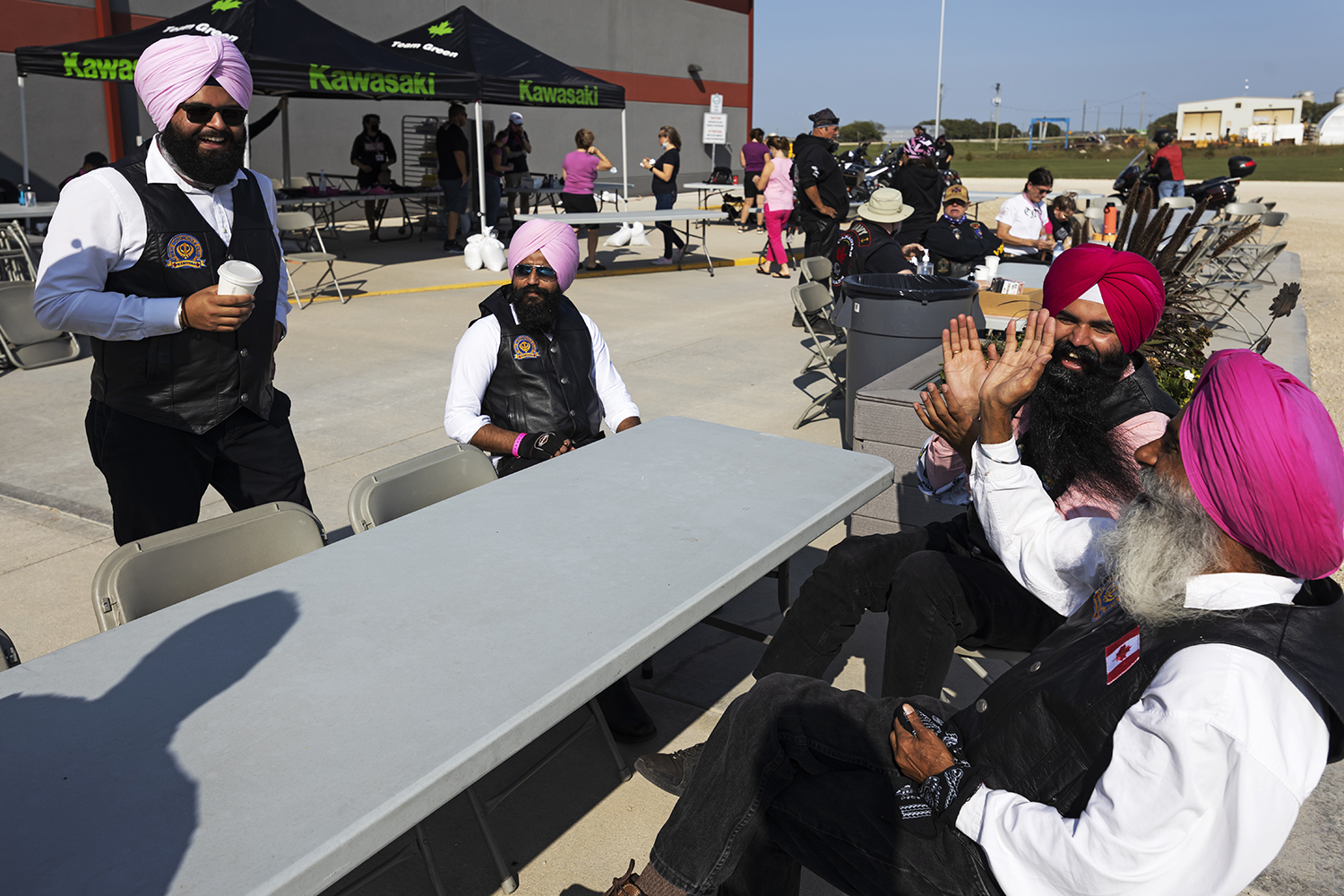
Last May, the group rode to the site of a former residential school in Brandon, Man., to support the Every Child Matters movement and in recognition of the hundreds of unmarked graves discovered at similar sites throughout Canada.
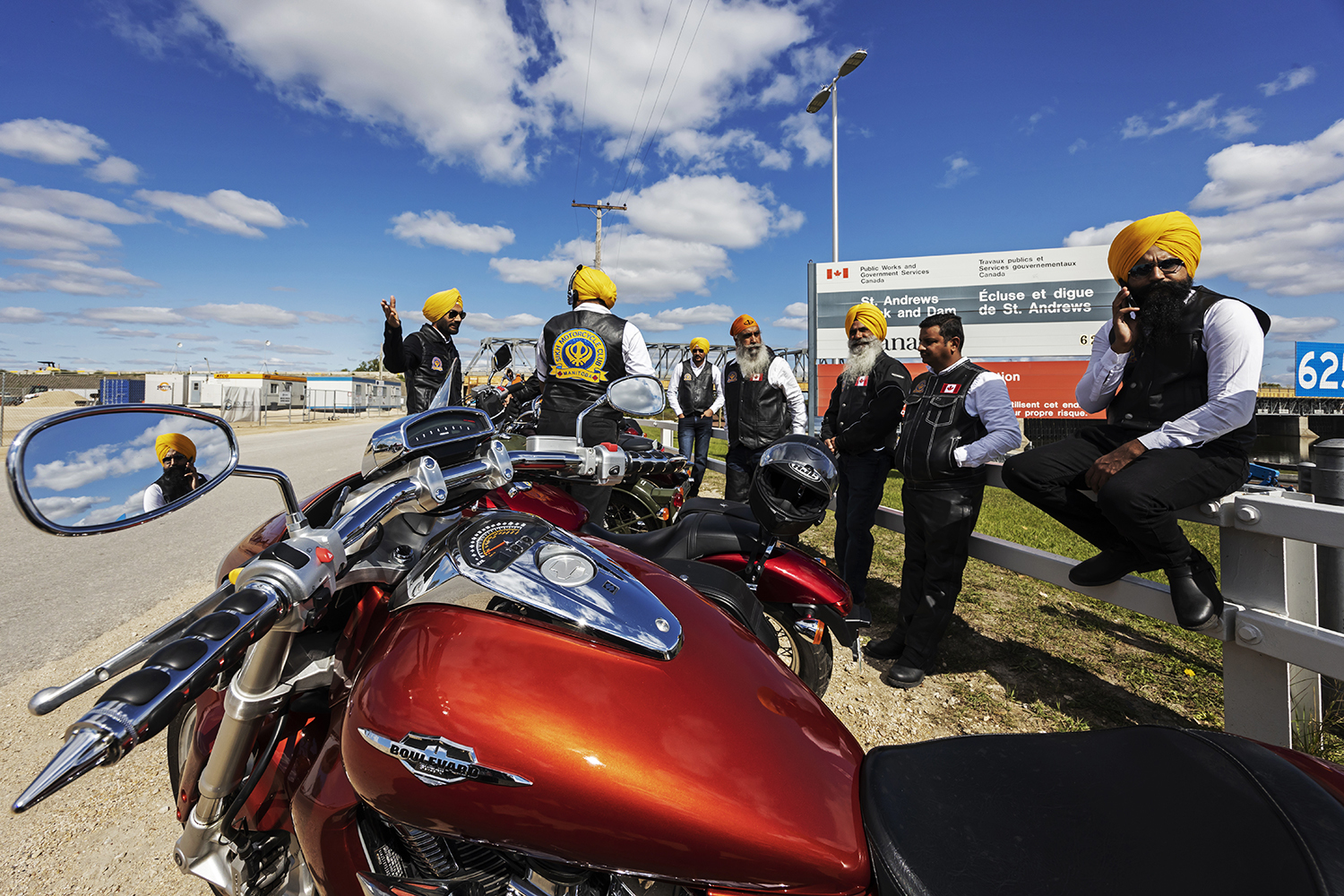
Rides for causes take on additional meaning because the act strengthens one of the key pillars in Sikhism, which is to perform community service.
Riders are committed to riding safely and at the same time spreading more awareness about Sikhism and the significance of wearing a turban in the faith.
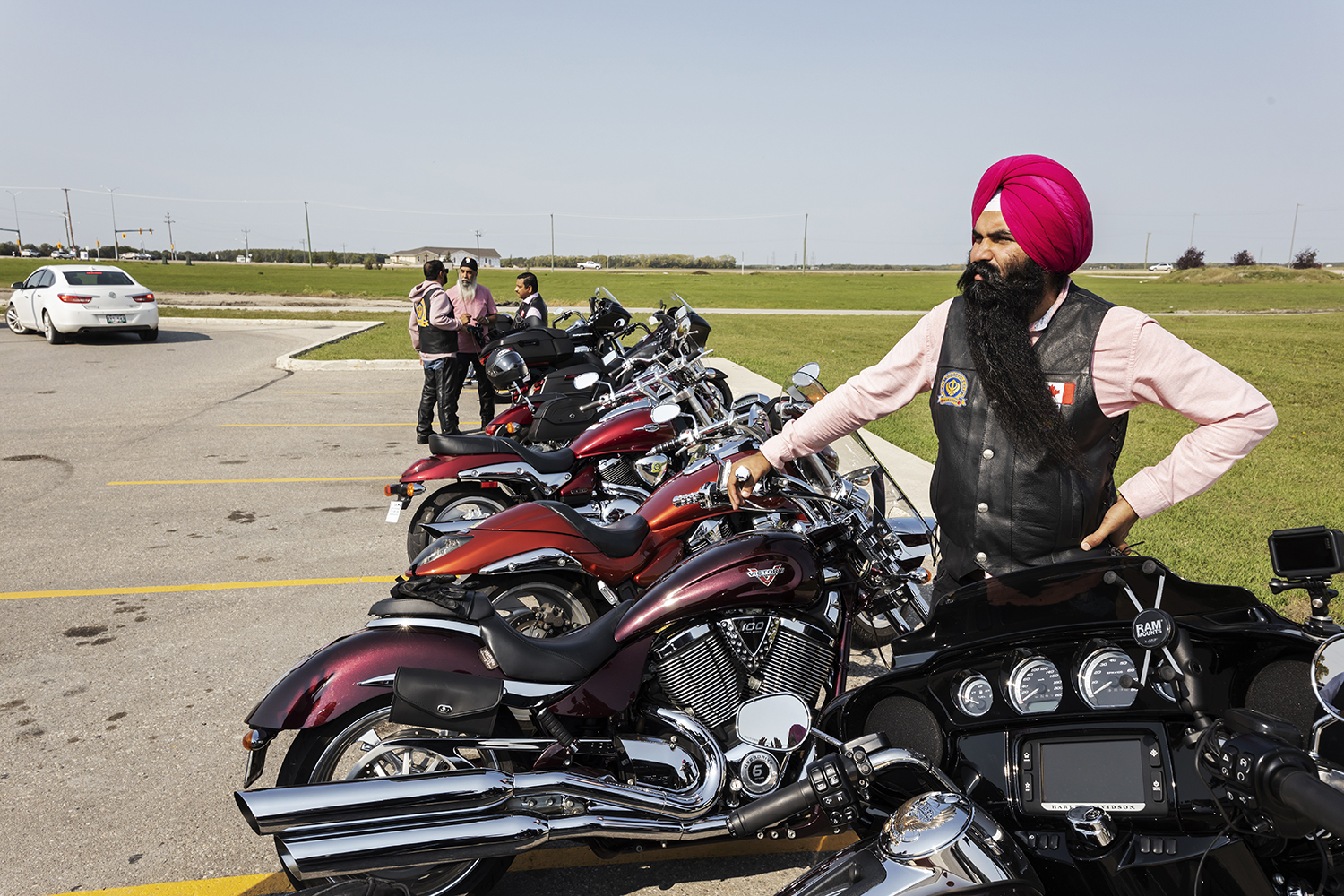
"Even when we fought in World War II or World War I, all the Sikh people fought with their turbans and not their helmets," Singh Sandhu said.
The turban is an inseparable part of a Sikh's identity — much like a motorcycle feels like an extension of a biker's identity gliding down the highway and flanked by friends, Singh Sandhu said.
"The turban is a part of our body; we always wear a turban," he said.
"Even though the club's members ride without [a helmet], they do it very safely."

Riding without a helmet is seen as a privilege, and Singh Sandhu says he's grateful that there is a helmet exemption in many parts of Canada.
The most recent province to adopt the exemption rule was Ontario in 2018.
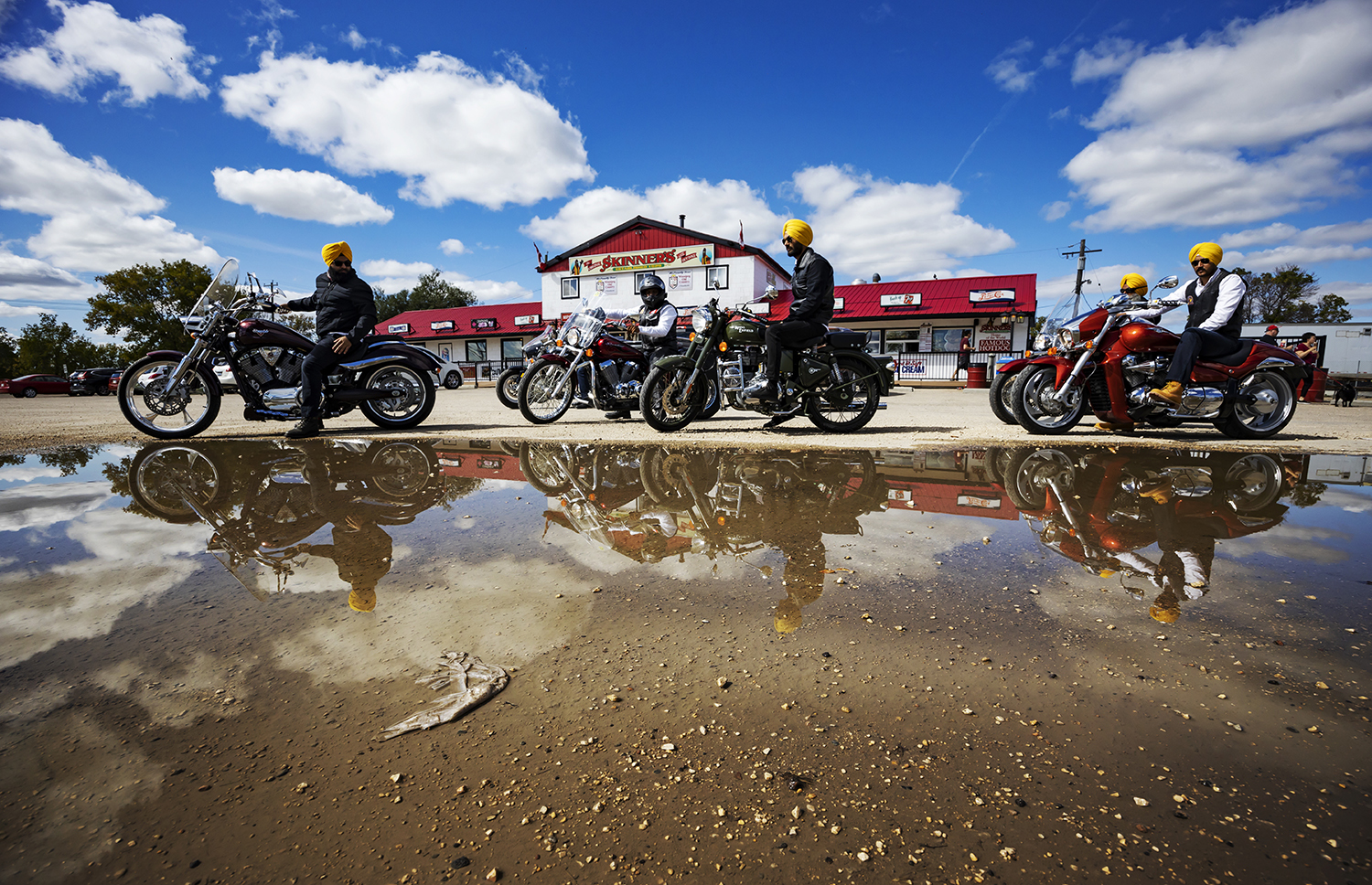
Every new member who joins follows rules and guidelines for motorcycle ridership and receives safety training. Inexperienced riders are encouraged to take a spot in the centre of the group so that they are under supervision.
"We know all it takes is one serious injury to lose this privilege," Singh Sandhu said.

Having the younger generation see riders visibly honouring Sikh customs and being accepted by the wider society is something all in the group value.
Their personal bonds of friendship extend beyond motorcycling activities and into birthday celebrations, festivals and time away from daily routines.
"When you ride, it's actually beyond explanation, like, you know, you kind of run out of the words, so you have to ride to actually experience that," Singh Sandhu said.
